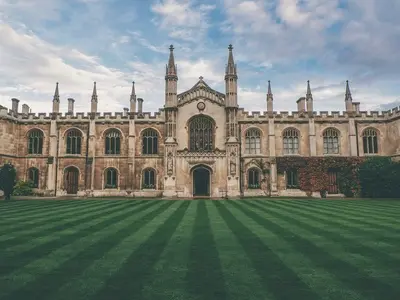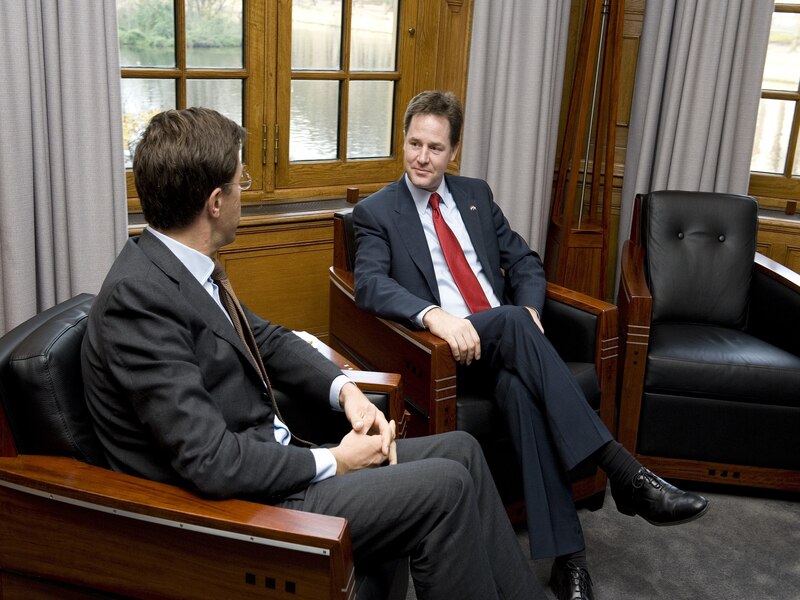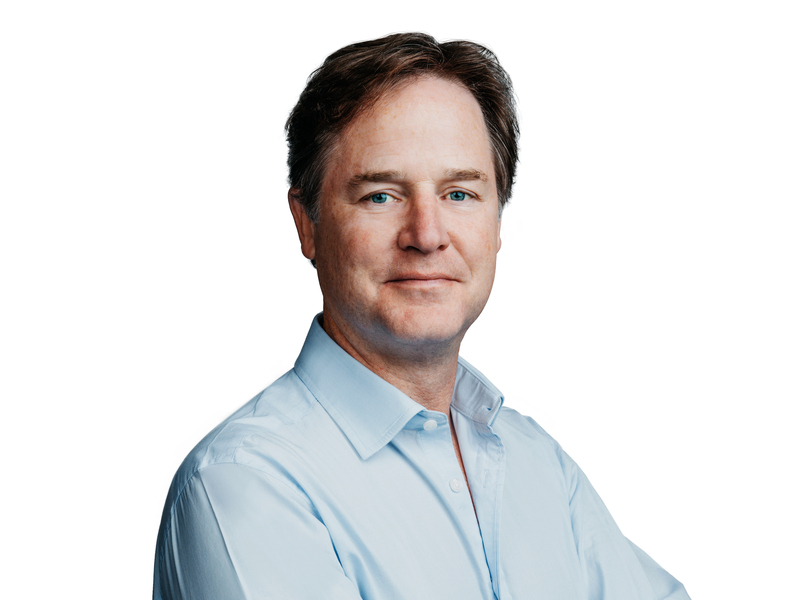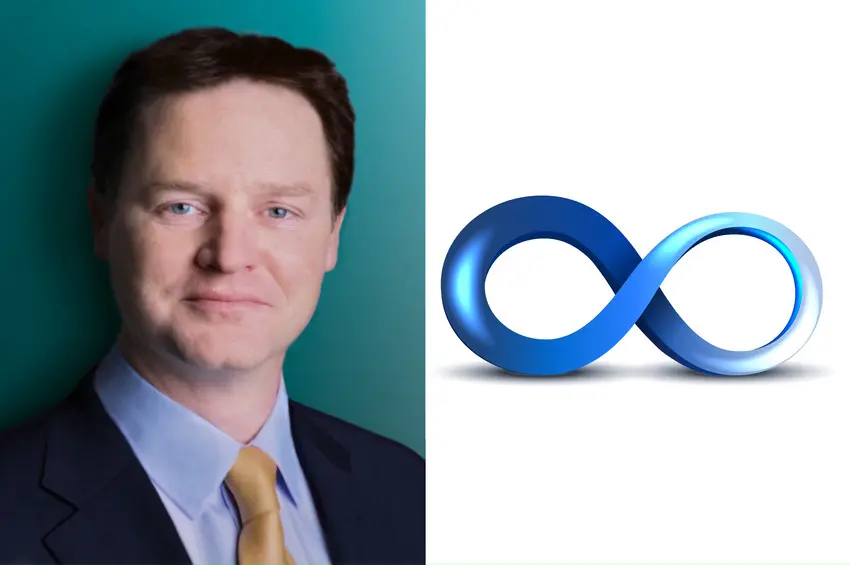- Sir Nick Clegg, former UK deputy prime minister and Liberal Democrats chairman, later held key roles at Facebook/Meta, serving as vice president of global affairs and communications before becoming president of global affairs.
- He has played key roles in British politics over a varied career, and now has an influential role to play in the tech industry.
- Clegg’s experience demonstrates excellence in two distinct fields, as a leader in the political arena and as an executive in the corporate world.
TLDR: Who is Sir Nick Clegg? From shaping policies as deputy prime minister of the UK, to navigating the corporate realm at Meta, see how the Cambridge graduate has forged a varied international career.
Sir Nick Clegg, a British political maestro turned corporate dynamo, seamlessly navigating the realms of politics and business with flair. In addition to serving as chairman and Deputy Prime Minister of the Liberal Democrats in the UK, he was vice president of global affairs and communications at Facebook (renamed Meta Platforms in 2021) and was promoted to president of global affairs in 2022. He has had a colourful life.
Why did he switch from politics to business? What have been the ups and downs of his political career? Let’s take a look at who Nick Clegg is.
Sir Nick Clegg: A brief biography

Born on January 7, 1967, in Buckinghamshire, England, Nick Clegg comes from a diverse background, with a Dutch mother (his aristocratic mother fled to England after the Bolshevik Revolution in 1917) and a half-Russian father. Clegg grew up speaking English and Dutch. Later he became fluent in French, German and Spanish.
Educated at Westminster College in London, Nick Clegg earned his M.A. in Anthropology from Cambridge University in 1989. He further studied political philosophy at the University of Minnesota from 1989 to 1990 and obtained another M.A. in European affairs at the College of Europe in Bruges, Belgium, in 1992.
He has travelled extensively and has held various jobs in Germany, Austria, Finland, the United States, Belgium, and Hungary. Prior to his political career, he worked in the European Parliament and served as a journalist in Belgrade. Clegg’s diverse background has influenced his political views.
Also read: South Korean President Yoon Suk Yeol and Japan’s Fumio Kishida set for tech cooperation roundtable
The political journey of Sir Nick Clegg
1999: Nick Clegg embarked on his early political journey by securing a seat as a Liberal Democrat Member of the European Parliament. This marked his formal entry into the Liberal Democrats. Advancing rapidly within the party, he assumed the role of a key spokesperson.
2005: His political ascent continued when he won the parliamentary seat for Sheffield Hallam in the 2005 General Election.
2007: Clegg clinched the leadership of the Liberal Democrats, prevailing by a slim margin of 511 votes in a ballot that involved over 41,000 party members..
2010: During the 2010 election, Nick Clegg helped form a coalition government with the Conservative Party, and became the Deputy Prime Minister of the UK. During this time, he focused on areas such as education, taxes, and the environment.
2015: In the election, the Liberal Democrats faced a significant setback, losing most of their seats. While Nick Clegg managed to retain his seat, he was one of only eight Liberal Democrats to do so. Faced with the party’s considerable defeat, Clegg stepped down from his leadership role in the Liberal Democrats. Following the loss of his parliamentary seat, he gradually disengaged from active political involvement.
2017: He was knighted in the New Year’s Honours list, but was unsuccessful in retaining his Sheffield Hallam seat at the general election.
Since then, he has continued several activities outside of politics, including writing and commenting in the media. He currently serves as President of Global Affairs for Meta Platform.
Also read: Unity CEO Steps Down Abruptly Months After Controversy
The rise and fall of his political career

Nick Clegg became deputy prime minister after the 2010 UK General Election and formed a coalition government with the Conservative Party, signing a Conservative-Liberal Democrat coalition agreement.The formation of this cooperation demonstrated his and the Liberal Democrats’ pivotal position in politics.
In the early days of the coalition government, Clegg enjoyed a degree of public support and there was a great deal of anticipation of his rise to power, particularly amongst those voters who expected to see political reforms and a centre ground position, so much so that ‘Cleggmania‘ quickly became part of the political lexicon.
As a crucial figure in the coalition government, Nick Clegg actively contributed to shaping policies. Nevertheless, the party experienced a decline in polling support after entering the coalition, notably following the government’s endorsement of raising the tuition fee cap. The Liberal Democrats had previously emphasized their opposition to tuition fees, making it a central campaign message. All party MPs, including Nick Clegg, pledged to oppose tuition fee increases by signing the Vote for Students pledge in the lead-up to the 2010 general election.
However, Clegg faced challenges in the coalition government, notably making concessions that resulted in the endorsement of a policy to increase university tuition fees. This decision eroded trust with the electorate and had repercussions for the Liberal Democrats. In September 2012, Clegg issued a formal apology, acknowledging the breach of his promise. The fallout from breaking the university tuition fee commitment was evident shortly after the 2015 General Election, with Liberal Democrat leadership contender Norman Lamb conceding that Clegg’s decision had incurred significant costs for the party.
Also read: Facebook’s Mother Company Meta Launches VR Subscription Service
Sir Nick Clegg’s role in modern politics
Nick Clegg has been active in fostering collaboration between different political parties, notably by advocating for the Conservative-Liberal Democrat coalition agreement to achieve broader social and political objectives. This commitment to cross-party cooperation has been instrumental in propelling the country forward.
During his tenure as Leader of the Liberal Democrats, Clegg championed several transformative and innovative policy ideas aimed at addressing social issues and enhancing people’s lives. These initiatives included the introduction of tuition fees and the legalization of same-sex marriage. While some of these policies stirred controversy, Clegg will be remembered for his pragmatic approach and efforts to find bipartisan solutions during political standoffs.
Throughout his political career, Nick Clegg actively promoted core values such as freedom, equality, and inclusivity. He underscored the significance of civil rights, the rule of law, and transparency, working tirelessly to advance social justice and equality.
Pop quiz
When did Nick Clegg join Meta Platforms (formerly Facebook)?
A. 2017
B. 2018
C. 2019
D. 2021
Find the answer at the bottom of this article.
Also read: Google CEO Sundar Pichai to testify Monday in US antitrust trial
Nick Clegg’s role at Meta

In 2018, Nick Clegg took on the role of vice president of global affairs and communications at Facebook. This was at a time when Facebook was facing serious criticism for its dissemination of false information and for its role in the 2016 US presidential election. Clegg played a pivotal role in establishing Facebook’s external oversight board, tasked with reviewing the company’s decisions regarding content removal and retention. Additionally, he spearheaded efforts to foster greater transparency and engagement with critics and the media.
Clegg emerged as a central figure in addressing allegations, including those related to Facebook’s perceived negligence in allowing its platform to be exploited for the incitement of hatred and violence against Myanmar’s Rohingya minority. Reports also surfaced suggesting that Facebook had relaxed some security measures for the Rohingya in Myanmar. Following the 2020 U.S. presidential election, the social network was implicated in orchestrating the 2021 attack on the U.S. Capitol. In recognition of his contributions, Clegg was promoted to the position of president of global affairs in February 2022.
Also read: Instagram’s Threads Won’t Rival X in Breaking News, Mosseri Clarifies
Sir Nick Clegg’s net worth
Clegg’s transition from a British diplomat to a Facebook executive has brought with it a considerable change in salary and net worth.
£134,565: Nick Clegg’s annual salary as Deputy Prime Minister of the United Kingdom was around £134,565 (US$166,900), which was not far from the £142,500 annual salary of the Prime Minister at the time.
US$656,000: His salary in 2019 was reportedly around US$656,000 during his time as vice president of global affairs at Facebook. Whilst this figure is a far cry from the whopping US$20 million claimed by other sites, it is significantly higher than what he would have earned in his government role.
£2.8 million: His 2022 salary is reportedly £2.8 million (US$3.47 million).
In addition to his salary, Clegg owns several properties.
US$9 million: Reportedly, he used a sizeable mortgage for the purchase of a house in California. In 2018, after moving to the U.S., he purchased a mansion in Atherton, California for $9 million and, in 2022, he sold it for $12.5 million, making a profit of $3.5 million.
£2 million: In addition, he owns townhouses in London worth around £2 million (US$2.48 million).
Nick Clegg has experienced a varied career journey across multiple roles and responsibilities. His experience and expertise will continue to be an invaluable asset to Meta, and wherever he may go after.
The correct answer to the pop quiz is B. 2018. Nick Clegg joined Facebook (renamed Meta Platforms in 2021) as vice president of global affairs and communications in 2018.

